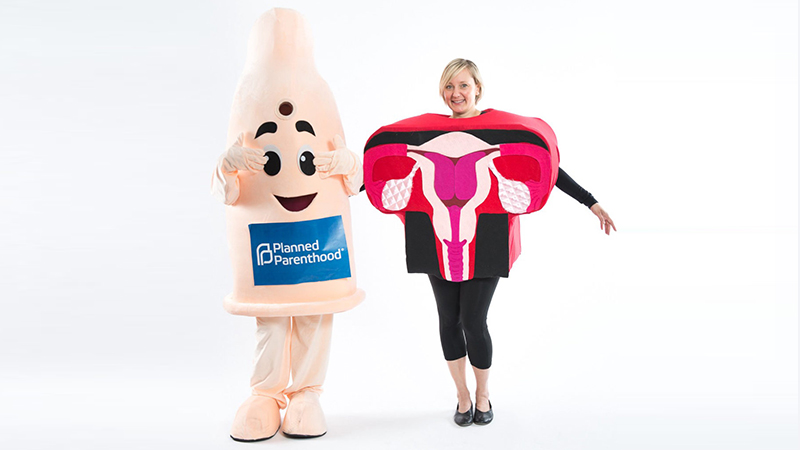
Sign Up For Our Careers Newsletter
3 Spooky Stats and How We’re Combating Them at PPPSW
Candy, costumes, jack o’ lanterns and pumpkin spice can only mean one thing: Halloween is right around the corner! While we’re excited about all of the scary movies and haunted houses to come, we’re also hard at work combatting the spookiest ghoul of them all: threats to your health and well-being.
When you work at Planned Parenthood, you’re faced with realities that aren’t ideal. Not all news is good news, but we’re dedicated to giving everyone the best chance to have their best life. Utilizing pioneering medicine, cutting-edge technology, passionate supporters and the most talented minds in medicine, we’re working to cut the numbers of people living with health issues, provide the best quality of life possible, and prevent new instances where we can.
The Latinx Community is disproportionately affected by HIV/AIDS.
Hispanics/Latinos represent nearly 18% of the total population of the United States, but accounted for 26% of the 40,324 new HIV diagnoses in 2016 in the United States and 6 dependent areas. This is unacceptable. As a healthcare facility in a state that’s home to more than 15 million Latinx people, we consider reducing the number of new diagnoses a top priority.
October 15 is Latinx AIDS Awareness Day. Luckily, HIV testing is simple and painless. We’re proud to offer stigma-free testing to our community. A rapid HIV test takes approximately 20 minutes to see results. We offer HIV counseling at most of our locations to help our patients understand the steps they should take to protect themselves and their loved ones and to help deal with the emotions.
We are also proud to offer education and access to PReP and nPEP. PrEP is an antiretroviral drug that prevents HIV from gaining a foothold. When enough of the drug is built up in the body, it starts protecting the T-cells HIV likes to attack. If the virus can’t get inside the T-cells, it can’t replicate and you don’t get infected. nPEP (post-exposure prophylaxis) is a drug that is taken after exposure to HIV. nPEP is designed to keep HIV from multiplying inside the body.
Over 10 million people are subjected to domestic violence every year.
This month is Domestic Violence Awareness Month. In 2018 it was estimated that as many as 1 in 4 women and 1 in 7 men have experienced severe physical violence by an intimate partner in their lifetime.
As advocates for accessibility to healthcare, we also realize the importance in creating advocacy around safety. Approximately 20 percent of women with a history of abuse who seek care with family planning providers like Planned Parenthood also experience pregnancy coercion and 15 percent of these women reported birth control sabotage.
At Planned Parenthood, we provide screenings for intimate partner violence at every one of our approximately 700 health centers in a safe and confidential setting. We also recognizes that education is critical in teaching people to recognize the signs of intimate partner violence and learn how to leave and help those they love leave abusive relationships safely. These important issues are one reason why Planned Parenthood works in communities across the country to reach more than 1.5 million people each year through our education and outreach.
Approximately 1 in 8 women will develop invasive breast cancer over the course of their lifetime.
October is Breast Cancer Awareness Month. Awareness has skyrocketed in the past decade — and it fills us with pride to see so many people engaged and supportive.
Our goal, however, is to empower every woman to take charge of their own health. We want to spread awareness that Planned Parenthood provides access to education about breast cancer risk factors, clinical breast exams that can detect abnormalities and referrals for diagnostic services.
Every year we provide nearly 500,000 breast exams at health centers across the country which helped identify cancer or other serious issues for nearly 90,000 patients.
As Cecile Richards, the former President of Planned Parenthood once said,
“Providing breast cancer screenings is an incredibly important part of the work we do here at Planned Parenthood, and demonstrates the many ways our services can truly be lifesaving for many women including those who are uninsured and women of color who are often more likely to lack access to health care and as such be at a greater risk for breast cancer than others.”
Join Us.
If causes like these are important to you, we want you on our team. It takes people like you, who care, no matter what, to make a difference.
Explore our openings here.
